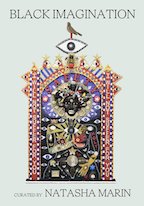What are you reading in February?

In our monthly book club, we discuss whatever we happen to be reading and ask everyone in the comments to do the same. What Are You Reading This Month?
Such A Fun Age by Kiley Reid
Inhabiting the perspectives of two women—well-off white thirtysomething Alix and her twentysomething Black babysitter, Emira—Kiley Reid’s astonishing debut depicts the barriers that arise through cultural and economic differences. The novel begins dynamically with Emira being accosted at a grocery store, accused of kidnapping her young charge, Briar, Alix’s elder daughter. The episode kicks off a pivotal series of events, including Alix’s newly sparked and ultimately misguided affection for her young babysitter. Reid also displays how Emira transforms depending on her surroundings: relaxed with her spirited girl squad, enthusiastically affectionate with toddler Briar, and politely enigmatic around Alix, who she only knows as “Mrs. Chamberlain.” Alix has lost her footing after her family’s move to Philadelphia from New York and the birth of her second child; she latches onto Emira in an effort to find new purpose, but does so in all the wrong ways, never recognizing her condescension. While events hurtle toward an explosive culmination, as Alex and Emira are tied closer than they realize, Reid offers multiple in-depth angles on race, womanhood, ambition, compassion, and what it really means to care for a child. It’s a hard book to put down and lingers long afterward, leading to larger contemplations about how well we can really know another person, despite even well-intentioned attempts at empathy. [Gwen Ihnat]
Hitting A Straight Lick With A Crooked Stick by Zora Neale Hurston
Hitting A Straight Lick With A Crooked Stick is an indulgent find for reverent fans of Zora Neale Hurston. Featuring eight of her lost early works, it’s the first full collection of short stories that precedes the legendary Harlem Renaissance writer’s fame. Before publishing 1937’s Their Eyes Were Watching God, the novel for which she would become best known, Hurston was a young observant writer from Eatonville, Florida, boldly confronting race, gender, class, and politics. When you soak in her use of dialect, wit, and fierce satire, these tales further cement Hurston as a vital advocate for a Black Southern perspective and intellect, centering an experience that shines in its authenticity. Hurston’s early work also highlights moments of real tenderness and introspection in the face of stereotypical notions that portrayed Black Americans as brutish and unthinking. There’s an unmatched honesty to Hurston’s voice even in its nascency as she explores failed love and the other side of cultural “resilience.” While there are passages that strike familiar, painful blows, there’s an inspiring bravery that comes with presenting the full scope of one’s experience. This is an ideal way to really get an understanding of who Hurston was: unflinching, brilliant, and Southern as hell. [Shannon Miller]
Everywhere You Don’t Belong by Gabriel Bump
Gabriel Bump’s debut novel moves, its brisk pace and volleying dialogue sending the reader through adolescence along with its protagonist, Claude McKay Love. Everywhere You Don’t Belong is the kind of coming-of-age story that we don’t see enough of, yet it captures hindsight in a way few other bildungsroman tales do. The rich detail keeps the reader in the moment, but the short chapters remind us of how we experience time in our teens, and how that perception changes the older we get; there’s always too much waiting when we’re young, and never enough time once we’ve cleared two or three decades. But Everywhere You Don’t Belong will linger—smart, funny, and heartbreaking as it is. [Danette Chavez]
Black Imagination, curated by Natasha Marin
As part of her Black Imagination project, conceptual artist Natasha Marin spent months asking “black folks of all kinds” three questions and audio-recording their responses: What is your origin story? How do you heal yourself? Describe/Imagine a world where you are loved, safe, and valued. During the exhibit, which opened in Seattle in August 2018, visitors were blindfolded and led into a darkened room where Marin’s recordings created a “sonic web of the collected voices.” These voices—many from artists, activists, teachers, and poets—are this month preserved in book form (McSweeney’s), interspersed with Marin’s own poetic “rituals”: “Ritual For Black Joy,” “Ritual For Being Unbothered,” etc. The compilation is full of anger and hope, skepticism and utopic visions. “I wonder what it would be like to automatically be given the benefit of doubt,” says singer James E. Bailey. There is also humor to be found here. “Moisturize and decolonize,” reads one piece of Marin’s advice, and among the book’s front matter are “7 Steps For The White-Identified Reader.” (“Step 1: Relax.”) In envisioning greater spiritual, emotional, and creative freedom, this book and project celebrates what Black individuals love about themselves and each other, while simultaneously recognizing the pain of living inside a Black body in a white world. It is at once an affirmation and the casting of an impossible wish. [Laura Adamczyk]